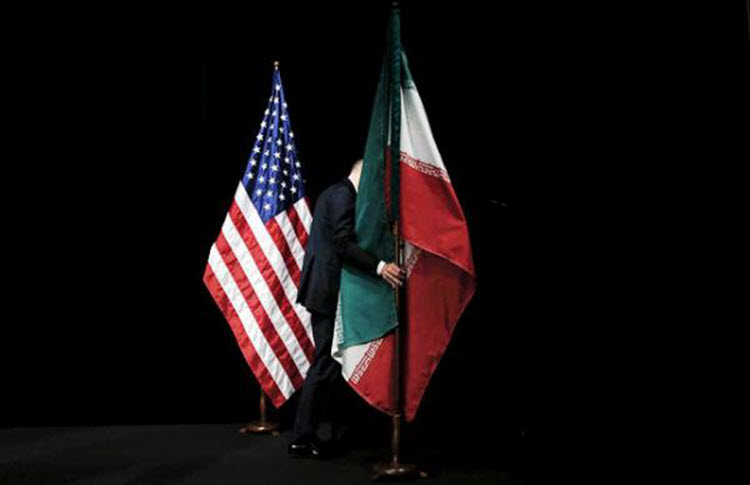
Iran Focus
London, 10 August – On August 6, Donald Trump re-imposed sanctions against Iran, as he had vowed to do when he pulled out of the 2015 nuclear deal in May.
These sanctions, aimed at Iran’s car industry, its trade in gold and its ability to access dollars, will harm the Iranian economy, which is already at breaking point after decades of corruption.
But the other signatories to the 2015 deal, which lifted sanctions on Iran in exchange for supposed restrictions to its nuclear programme, are throwing up roadblocks to these US sanctions.
Not only are Britain, France, Germany, Russia and China all remaining a party to the deal and refusing to abide by US sanctions, they are also, in some cases, outright banning their companies from abiding by US sanctions.
The European Union has instructed any companies in its borders not to comply with US sanctions and withdraw from Iran, without receiving special permission from the European Commission first. The EU even drew up laws to allow businesses affected by the US sanctions (i.e. not being able to trade in the US anymore) to sue America from their member states.
However, few think that the EU’s plan will stop businesses from complying with market forces. Indeed, many have already made plans to withdraw from Iran, including France’s energy giant Total. The spiralling economy in Iran, where the rial has lost 60% of its value against the dollar since last summer, is hardly conducive to a thriving global marketplace.
Iran has attempted to fix their problems by finding a scapegoat; the central-bank governor and his deputy. It’s also worth noting that the governor had been placed under US sanctions for terrorism, which made his dealing with financial transactions very difficult, so he had to be replaced with someone who would work in the same way, but wasn’t currently under sanctions.
But the reality is that these problems and corruption go right to the heart of the Regime, with large chunks of the economy under the control of the mullahs, albeit through a variety of front companies.
While President Hassan Rouhani tries to sell himself as a moderate to the outside world, the international community should know that he has no interest in rooting out corruption. He has no interest in helping the Iranian people. When it comes to the crimes of the state, all members have blood on their hands.
Trump says he wants a better deal with Iran and that he’s prepared for unconditional talks, but really he should abandon all hopes of a deal that Iran won’t cheat on and support the Iranian people’s legitimate call for Regime change.